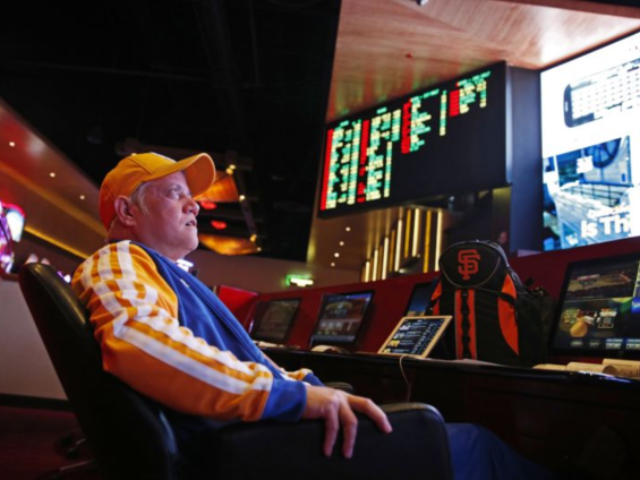On May 14, the Supreme Court overturned a federal law that prohibits sports gambling, giving states the right to legalize sports betting.
Some politicians considered this a big win for the United States.
#SCOTUS ruling on sports betting is a win for NJ & our entire country. I have long believed that NJ should have the opportunity to proceed with sports betting. Now, Congress must ensure that consumer protections are in place in any state that decides to implement sports betting. pic.twitter.com/8uuTBzuyWf
— Rep. Frank Pallone (@FrankPallone) May 14, 2018
“It’ll be hundreds of millions of dollars a year,” Former N.J. Governor Chris Christie said on ESPN of what this means for New Jersey. “It’s going to be a great thing for the individual states that get involved.”
Christie feels it should help state coffers by bringing in a “significant amount of revenue.”
But where is that revenue coming from? Probably the citizens of states with sports-books when they lose money, and in some cases, become problem gamblers.
And that is why an organization named, “Stop Predatory Gambling,” a 501c3 non-profit based in Washington, DC, is railing against the Supreme Court decision. After the court ruled 6-3 to reverse a 1992 law that barred state-sponsored sports outside of Nevada, they issued the following statement:
All men and women in our nation deserve a fair opportunity to build the best life possible for themselves and their families.
This litigation was conceived in greed by powerful gambling interests in partnership with a handful of self-serving politicians to benefit a privileged few. It’s a naked money grab from the wallets of ordinary Americans cloaked as a ‘states’ rights’ case.
While the Court’s ruling centered on lofty questions involving states’ rights, the real-world consequences of its decision are severe. The American people lost $117 billion on state-sanctioned gambling in 2016, causing life-changing financial losses for millions of citizens. It directly contributes to the lack of mobility out of poverty that traps so many. This serious national problem will be made far worse if the government is allowed to operate and advertise sports betting.
Les Bernal, national director of “Stop Predatory Gambling,” is concerned about legalized sports gambling hurting kids.
“Sports betting is especially dangerous for American kids,” Bernal said. “Studies show that kids in those countries with legal sports gambling are repeatedly exposed to harmful messages advertisements about sports gambling. It normalizes gambling for kids.”
Now some people will argue that sports betting goes on through bookies and foreign online sports books, so why not make it legal, regulate it, and let the states benefit from it?
Yes, it’s true that for years people have bet on sports with bookies and online accounts. But now, instead of having to find a bookie, or start a sometimes risky internet account, you will be able to just walk up to a counter, like you’re going to a convenience store, and place a bet.
So this will likely bring a lot more people into the dangerous world of sports betting.
And “Stop Predatory Gambling” doesn’t think states should look to fund their budgets this way.
“We believe no agency or entity of government should depend on predatory gambling to fund its activities.” SPG said in their mission statement.
Bernal thinks the proliferation of states with sports books won’t end well.
“State sanctioned gambling is a relic of past failures of political leadership,” Bernal said. “Strong, visionary leaders from both political parties will ultimately phase out state sanctioned gambling because it’s failed. It’s inevitable. It’s not a question of if, but when.”
We will see if Bernal is right, but in the meantime, his non-profit will, “continue our just fight to improve people’s lives with compassion and fairness.”
Follow Dan Leberfeld on Twitter @jetswhispers

COMMENTS
Please let us know if you're having issues with commenting.